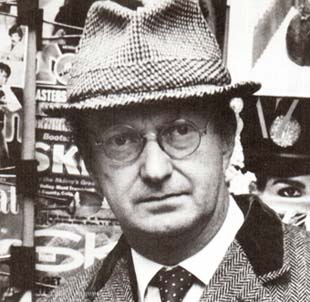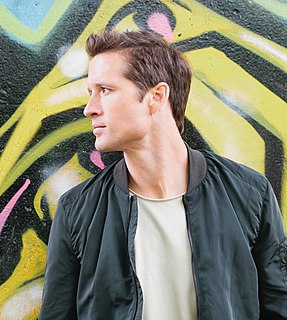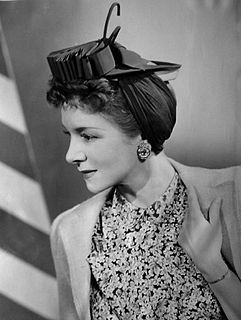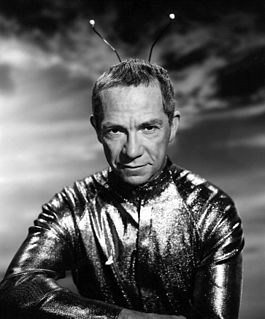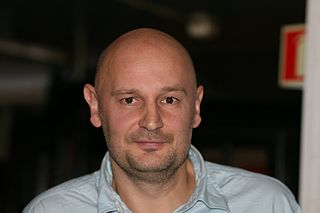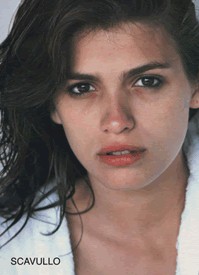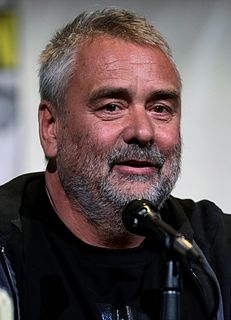Цитата Витольда Гомбровича
Я мог бы, конечно, возразить, кто говорит, что я не мог -- я мог в любой момент встать на ноги, подойти к ним и -- как бы это ни было трудно -- предельно ясно дать понять, что я было не семнадцать, а тридцать. Я мог бы, но не мог, потому что не хотел, я хотел только доказать, что я не старомоден!
Связанные цитаты
Если бы история могла чему-то нас доказать и научить, то это была бы частная собственность на средства производства как необходимый реквизит цивилизации и материального благополучия. Все цивилизации до сих пор основывались на частной собственности. Только нации, приверженные принципу частной собственности, поднялись над нищетой и создали науку, искусство и литературу. Нет опыта, показывающего, что любой другой общественный строй мог бы дать человечеству какие-либо достижения цивилизации.
Я не хотел пикап с грязевой резиной. Я хотел старый блейзер с таким количеством динамиков сзади, сколько я мог себе позволить. Я даже воровал их из машины брата и упаковывал туда. Я помню, как сидел на стоянке, включал радио погромче и шел по улице, чтобы посмотреть, как далеко можно его почувствовать.
Если бы воспоминания действительно были похожи на то, что записывает камера, их можно было бы забыть или они могли бы потускнеть и перестать быть четкими и яркими. Но было бы трудно объяснить, как люди могут иметь воспоминания, которые одновременно ясны и ярки, но при этом ошибочны. Тем не менее такое случается, и не так уж редко.
И я мог видеть, как этот мальчик делает свою домашнюю работу и думает о моей обнаженной сестре. И я мог видеть, как они держались за руки на футбольных матчах, которые они не смотрели. И я видел, как этого мальчика тошнило в кустах в доме для вечеринок. И я видел, как моя сестра терпела это. И мне было очень жаль их обоих.
Что мне действительно может пригодиться, так это пожилой мужчина. наставник. Тот, кто мог бы сказать мне, как вещи сочетаются друг с другом. Он бы попросил меня сделать работу по дому, которую я считал бессмысленной. Я был бы нетерпелив и протестовал бы, но сделал их тем не менее. И в конце концов, после нескольких месяцев каторжных работ, я бы понял, что за всем этим стоит более глубокий смысл, и что у мастера все время есть хитрый план.
Значит, ты не сказал мне, что держать все это в секрете было бредовой идеей, потому что. . ». «Потому что опыт — единственный учитель, — говорит Хей-Сус. «Даже если бы я мог сказать тебе, это была бы лекция. Как вы думаете, почему дети не слушают своих родителей, или люди не уходят из церквей и не делают то, что им говорит проповедник? Есть только одна вещь, которая универсальна». "Что это такое?" "Правда.
У нас там было небо, усеянное звездами, и мы обычно лежали на спине, смотрели на них и обсуждали, были ли они созданы или только что произошли — Джим, он допускал, что они были созданы, но я допускал, что они случилось; Я рассудил, что на изготовление такого количества ушло бы слишком много времени. Джим сказал, что луна могла бы положить их; Что ж, это выглядело довольно разумно, так что я ничего не возражал, потому что я видел, как лягушка откладывала больше всего, так что, конечно, это можно было сделать.
Я мог бы научиться фотографии. Это может быть что-то хотеть. Я могла фотографировать детей. Я могла бы иметь собственных детей. Я бы подарил им желтые розы. И если они становились слишком громкими, я просто ставил их в тихое место. Поставьте их в духовку. И я бы целовал их каждый день и говорил им, что тебе не обязательно быть кем-то, потому что я знал бы, что то, что ты кто-то, в любом случае не делает тебя кем-то.
Конечно, было обидно, что мы никогда не могли любить друг друга физически. Мы были бы гораздо счастливее, если бы у нас это было. Но это было похоже на приливы, смену времен года — что-то неизменное, незыблемая судьба, которую мы никогда не могли изменить. Как бы ловко мы ни скрывали его, наша хрупкая дружба не будет длиться вечно. Мы должны были зайти в тупик. Это было до боли ясно.


